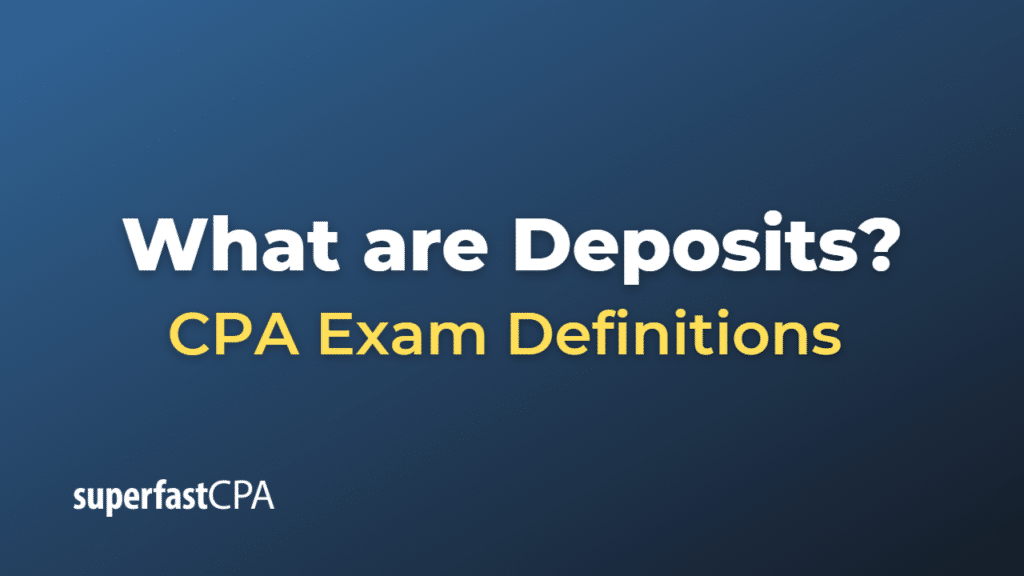Deposits
Deposits can have several meanings depending on the context. Here are a few common uses:
- Bank Deposits: In a banking context, a deposit refers to money placed into a banking institution for safekeeping. Bank deposits can be made into checking accounts, savings accounts, or other types of accounts at a bank.
- Security Deposits: In a rental agreement, a tenant often pays a landlord a sum of money at the start of the lease term. This security deposit acts as protection for the landlord in case the tenant damages the property or fails to pay rent.
- Purchase Deposits: When buying expensive items, such as a car or a house, the buyer often pays a deposit to show their commitment to the purchase. This deposit is typically part of the total purchase price and is paid upfront.
- Utility Deposits: Some utility companies require a deposit before starting new services. The deposit can be used to cover unpaid bills if the customer fails to pay their utility bills.
In all these contexts, the deposit is money given in advance as a part of a transaction, either as a security measure or a down payment. It’s also worth noting that in a banking context, deposits are typically insured by government agencies up to a certain amount. For instance, in the United States, the Federal Deposit Insurance Corporation (FDIC) insures bank deposits up to $250,000 per depositor, per FDIC-insured bank.
Example of Deposits
An example for each context:
- Bank Deposits: Let’s say you just received your monthly paycheck of $5,000. You go to your local bank and deposit the entire amount into your checking account. The bank updates your account balance accordingly. This is an example of a bank deposit.
- Security Deposits: You’re renting a new apartment. The landlord asks for a security deposit of $1,000 to cover any potential damages or unpaid rent. You pay the $1,000 before moving in. This is an example of a security deposit.
- Purchase Deposits: You decide to buy a new car which costs $25,000. The dealer asks for a 10% deposit to secure the vehicle. You pay $2,500 as your deposit. This is an example of a purchase deposit.
- Utility Deposits: You’re moving to a new apartment and you need to set up electricity. The electricity company requires a $200 deposit before they start service. You pay the deposit, they set up your electricity, and the deposit will be returned or credited back to you after a certain period of good payment history. This is an example of a utility deposit.
In all these cases, a deposit represents money paid upfront as part of a transaction. It serves as a sort of guarantee, whether for a future purchase, the safekeeping of money, the coverage of potential damages, or the assurance of payment for services.













